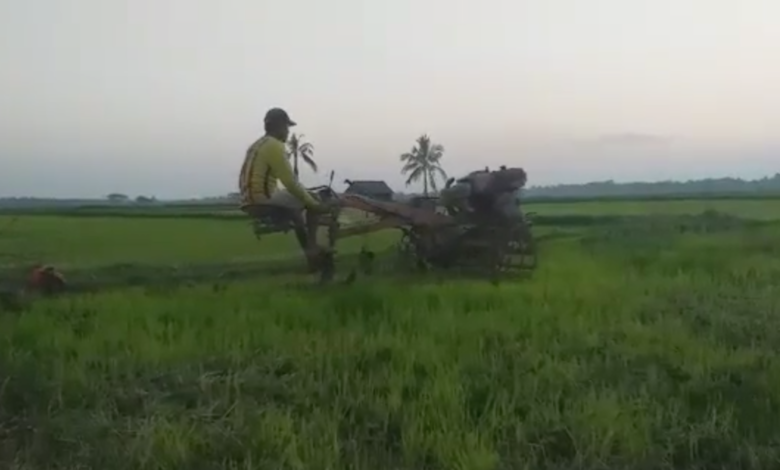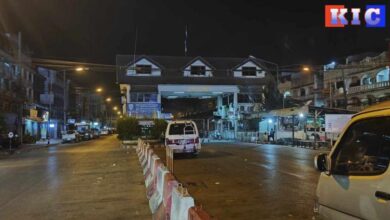Increased Farming Costs Major Challenge for Delta Farmers – UN Predicts Nationwide Economic Failure Pushes 25 Million into Poverty
Rising costs in the domestic agricultural sector are creating financial difficulties for farmers in the Ayeyarwaddy region. A Pantanaw Township farmer told Karen News farmers were now caught up in the rapid rise in the price of fertilizers needed for planting their crops, buying pesticides and fuel used for irrigation pumps.

The farmer explained to Karen News the recent increase in costs associated with farming is creating hardship – fuel costs have tripled.
“Price have increased a lot in recent days. Fuel is now more than 7,000 kyats (about USD$ 4) a gallon. Before, we could use 2,000 Kyat (about USD$ 1.5) worth of fuel for the whole day. Now, we have to use 15,000 Kyat (about USD$ 8.5) worth of fuel for a day. Farmers are concerned with the rising costs as it is not matched by our income.”
The farmer said that despite farmers being paid low prices for their paddy, retail rice prices have skyrocketed. The farmer told Karen News getting bank loans for agricultural projects were no longer available on a regular basis. Farmers said obtaining private loans were no longer available without bonds, and private loaners were demanding farmers had to have gold guarantees before lending them private loans.
Farmers who mainly rely on agriculture for their earnings said despite rising commodity prices for their products they were not getting any benefits from it. Farmers said all they could do was to keep farming, but they said they were concerned about markets for their products as the military coup had made things harder for them.
A farmer in Myaung Mya Township told Karen News, “Fuel prices are rising as the dollar price rises. It is now the time to irrigate our winter paddy fields, but with the rising cost of fuel, some fields will no longer be able to be irrigated. Diesel prices have doubled since the coup. Fertilizers imported from the Chinese market have stopped and pushed the price of a sack of available fertilizer from 18,000 Kyat (USD$ 8.2) to 24,000 Kyat (USD$ 10.4.”
The Myaung Mya farmer said government loans and development loans were now no longer available, and even if they were, farmers would not have the means to repay them. When taking loans from private lenders, the interest rates were now high, and even if using gold mortgages, interest rates were still unaffordable.
The Myaung Mya farmer explained that producing rice paddy was now paid to farmers at a lower rate despite the high costs for consumers.
“The price of paddy we get now is around 1 million Kyat [per 100 baskets] . At the time when paddy production was high, it was 1.2 million Kyat [per 100 baskets]. Now, those who sell monsoon paddy can only sell at 1 million Kyat. When we buy rice after selling the paddy, the price of rice that previously cost us 30,000 Kyat for one sack, now costs 45,000 Kyats. Other commodity prices are also on the rise.”
Since the military coup, nationwide conflicts have been escalating causing the country’s economy to crash and the Myanmar Kyat to depreciate by as much as 60%. This has placed a huge strain for workers and farmers trying to make a living. Villagers told Karen News the economic hardship has meant young people are selling their land to pay for their passage to work abroad.
The rise in price of domestic gold and the US dollar since the coup has caused commodity prices in the domestic market to rise sharply. While declining export of goods has made it added to the difficulties facing farmers in the Ayeyarwaddy region.
The United Nations Development Program (UNDP) estimates the poverty rate of Myanmar’s urban population will triple this year, with an estimated 25 million people being affected nationwide – a staggering 48.2 %, suffering from poverty.




